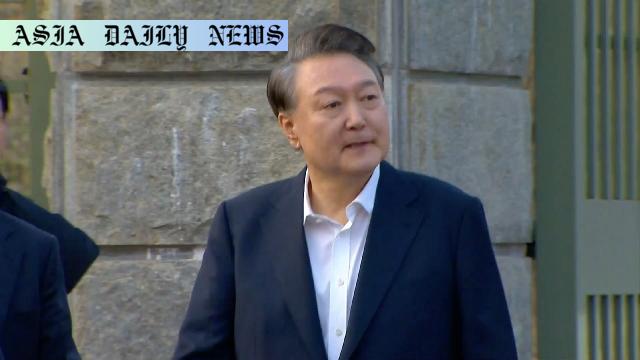Indictment: South Korean prosecutors announced former President Yoon Suk-yeol’s indictment for abuse of power without detention.
Former South Korean President Yoon Suk-yeol has been indicted for abuse of power.
Yoon’s charges include leading an insurrection and declaring martial law.
A full investigation began after his removal from office in April.
Prosecutors promise a thorough investigation into related allegations.

Overview of Yoon Suk-yeol’s Indictment
In a startling turn of events, South Korea’s former President Yoon Suk-yeol has been officially indicted on charges of abuse of power. On Thursday, South Korean prosecutors confirmed Yoon’s indictment without physical detention, a move that adds a significant chapter to the political history of the nation. This case involves serious allegations, including a declaration of martial law last year and leading an insurrection, both of which have already tarnished Yoon’s political legacy. While a trial for the January insurrection charges is already underway, this latest indictment further signals the gravity of the accusations against Yoon.
Constitutional Immunity and Prosecutorial Actions
The timing of these developments is noteworthy given how South Korea’s laws shield incumbent presidents from being indicted for abuse of power until they leave office. However, when the Constitutional Court removed Yoon from office in April, the pathway was cleared for prosecutors to initiate a full-fledged investigation. A nation known for its strict judicial processes, South Korea now finds itself at the center of international attention as these legal proceedings unfold. The case raises questions about leadership accountability, especially for those in the highest office, and underscores a broader push to scrutinize and limit the misuse of power among top officials.
The Implications for South Korean Politics
The indictment of a former president presents both challenges and opportunities for South Korea’s democratic institutions. On one hand, it demonstrates the ability of the judiciary to hold even the highest-ranking officials accountable, reinforcing democratic norms. On the other hand, it highlights the potential for political volatility in a nation that has witnessed similar high-profile cases in the past, including the conviction of other former presidents. For prosecutors, their promise to conduct comprehensive investigations into related allegations signifies a pivotal moment for rebuilding public trust in governance and upholding the rule of law within the country.
Investigation Dynamics Moving Forward
As the legal proceedings continue, the South Korean public and international observers await further developments with keen interest. Details emerging from the ongoing investigation will likely shape public discourse in the coming months. The charges against Yoon Suk-yeol are no mere footnotes in legal history; they are emblematic of broader systemic challenges and the high stakes of political accountability in South Korea. Prosecutors, in their statement, have reiterated their commitment to unearthing all connected allegations. Their work will likely uncover further incidents that could paint a comprehensive picture of Yoon’s tenure and governance approach during his time as president.
The Broader Lessons for Leadership
The indictment against Yoon Suk-yeol acts as a cautionary tale for leaders around the world. Abuse of power, if proven, represents an erosion of trust, governance principles, and national integrity at large. South Korea’s determination to address these allegations, despite the turbulence it may cause politically, sets an example for how nations can and should prioritize legal accountability above political considerations. For now, the nation stands united in anticipation of clarity on the outcome of Yoon’s ongoing trials.



Commentary
Holding Leaders Accountable
The indictment of former South Korean President Yoon Suk-yeol delivers a powerful message about accountability and governance. In today’s increasingly scrutinized political climate, this case stands as a reminder that even the most powerful leaders are not beyond the reach of law. Yoon’s charges, especially those related to abuses of power and insurrection, emphasize the importance of vigilance in upholding democratic principles and preventing the overreach of authority.
The Role of Strict Judicial Systems
South Korea sets a strong example with its judicial independence, showcasing the potential for a nation’s judiciary to act without bias or undue influence. The removal of Yoon’s constitutional immunity after his ousting provided the avenue for investigations to deepen, demonstrating the checks and balances embedded within the government. Similar mechanisms in other democracies could pave the way for greater accountability and transparency worldwide.
What This Means for Global Governance
Yoon’s indictment is not just a South Korean issue; it resonates on a global scale. In an era where democratic institutions in many countries seem to be under threat, the unfolding events in South Korea serve as a case study in governance and legal clarity. Discussions on abuse of power, accountability, and judicial action should spark reflection among nations on how best to create systems that deter misuse of authority by public officials.
Closing Thoughts
As the world keeps an eye on the Yoon Suk-yeol case, it becomes important for nations to take note of how South Korea is addressing issues of power and responsibility. This isn’t simply about one man or one country—it’s about ensuring that justice and systems of governance are robust and reliable. If proven guilty, the former president’s accountability will underscore the principle that no individual is above the law.